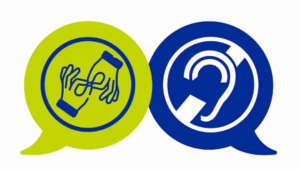What is HIPAA? A Brief Explanation
HIPAA is The Health Insurance Portability and Accountability Act of 1996. The Act was signed into law by President Bill Clinton in 1996. The aim of the Act is to ensure that employees who work for American companies can retain their health insurance coverage while moving to different jobs or positions. The Act also includes guidelines for protecting medical information and personal individual details, known as Protected Health Information (PHI).

HIPAA and PHI
Understanding HIPAA is an integral part of working in any medical setting. HIPAA regulates virtually every aspect of the healthcare experience as a whole in America. The act includes provisions for health insurance coverage both while employed and when between jobs, paid/guaranteed leave; FMLA, the distribution of health and personal information (PHI). The regulation of covered entities (defined as any companies, groups, or individuals who come into contact with PHI); and medical billing. The most relevant part of the Act for an interpreter or member of the public who frequently works with interpreters is the Privacy Rule.
According to the US Department of Health and Human Services, the Privacy Rule (also known as the Standards for Privacy of Individually Identifiable Health Information) sets national standards for the protection of health and patient information. The rule applies to anyone with access to Protected Health Information.
Protected Health Information (PHI) covers all the details that can be used to identify a patient.
In addition to the first name, last name, address, birth date, demographics, and social security number, PHI includes:
- An individual’s past, present, or future physical or mental health or condition
- Details about the provision of health care to the individual (appointment schedules, names of the patient’s providers, etc.)
- The past, present, or future payment for the provision of health care, including both paid and unpaid bills
So how does HIPAA affect a Healthcare Interpreter’s job on a daily basis?
The goal of the Privacy Rule is to protect patient information and confidentiality.
To limit the risk of non-compliance, a healthcare interpreter should always avoid:
- Discussing patient details (PHI) with anyone other than the clinical staff directly involved with the patient.
- If the interpreter needs to disclose, or discuss, confidential information to one of these pre-approved individuals the interpreter must make sure that there is no one else in the room. The door must also be closed. Medical facilities are typically able to provide private spaces for this purpose.
- Using a patient’s full name in unprotected e-mails or public phone calls.
- If the Health Interpreter is ever in doubt, we suggest using a case number as a first line of action. They should call their Project Manager to confirm a patient’s case number if it’s not listed on your timesheet.
- If the Project Manager lets the interpreter know that the patient doesn’t have a case number (usually linked to the medical facility database), the interpreter can reference the assignment number on your timesheet.
- Telephone calls to the Project Manager should always be made in private. If that’s not possible, using patient initials during the call is the next best course of action.
- Throwing away any paper that includes PHI (for example: work orders/contracts, as they contain the patient’s name).
- These documents should go into a secure, HIPAA compliant shredder. These shredders are readily accessible in medical facilities. Any clinician will be able to direct the healthcare interpreter to the nearest shredder.
- Furthermore, interpreters should destroy these documents in front of both the provider and patient at the end of each of their interpreting session.
Recommendations
If an interpreter has questions about whether the information is protected by HIPAA; or if they need to report a significant detail and aren’t sure whether or not it’s classified as PHI, we recommend erring on the side of caution.
The interpreter can speak with the clinician directly responsible for the patient’s case; in a private room with a closed door. No information can be discussed about any patient (s) outside of the assignment time boundaries. The only exception to this regulation is for information that falls under the guidelines of “Mandatory Reported Subjects”. Including if upon further reflection after the assignment the interpreter determines a patient might be a danger; to themselves or others. Reported or suspected sexual or physical abuse is another exception that must be discussed with the primary clinician at the first opportunity.
If an interpreter is concerned that they have accidentally violated HIPAA, they must immediately contact their Interpreting Project Manager. The Project Manager will assess the situation and determine if further action is necessary.





6 Responses
I would like to know if a medical interpreter is allowed to use eCW as a provider and use the system to bill for interpreting services.
Thank you for your inquiry Bibiana. It is up to the provider and interpreter, and the nature of their business relationship as to whether the provider wanted to issue access to their EHR software for billing purposes. Access to any patient information would obviously have to be carefully protected using both technological and contractual safeguards. From our point of view, as an agency, our billing process is flexible and can accommodate submitting bills via a client’s online platform as long as the proper safeguards are in place. We would review this on a case by case basis.
I have a question.
I am a bilingual patient at a Dialysis facility. There was an older patient who needed medical attention. He did not speak or understand English. I offered my help as a translator for him. An ambulance was called for him. Unfortunately neither staff here at the facility or the ambulance personnel, did not speak or understand Spanish. I was told by the clinic nurse, that it was against HIPAA, for me to translate for this patient to receive help. Is that right? If a person’s life is in danger, I can not help with the language barrier?
Hello Joaquin,
Thank you for bringing this case up to our attention. Our understanding is that as long as the patient approves the interpreter’s presence, it doesn’t constitute a violation of HIPAA. HIPAA protects patients’ Protected Health Information and patients are required for their consent in order share their PHI. The same principle is applicable when the patient authorizes you to be his/her interpreter. However, the Joint Commission requires hospitals and healthcare facilities to employ only medical interpreters that have successfully attended programs like the Bridging the Gap Medical Interpreting Program. Perhaps the Clinic Nurse meant you could not interpret because you didn’t have proper medical interpreting training. In many occasions, patients bring family members to their doctors’ appointments. This is seen by the Healthcare providers as a potential liability because the family member is not properly trained in the rules of interpretation and lacks the knowledge of the required medical terminology. In such cases, the family member cannot provide the professional medical interpretation that the patient and provider require. I hope this helps Joaquin! And thank you again for your contribution!
No you can not, all medical facilities, services have to provide qualified interpreters/ translators.
Being bilingual,multilingual dosen’t make a person qualified.
Not to mention the legal ramifications for you.
I am a retired medical interpreter, have 2 degrees, passed the ATA certification, multiple certifications to work with victims of torture,abuse, medical trials, legal interpretation,community.
I am fluently in 5 languages but only work with 2.
I protect myself from any legal actions and the institutions I worked for.
I have had occasional problems when a VIP would arrive from their country with their own interpreter that was their medical doctor, I had to tell them that only I could interpret, they can be present.
Also in medical encounters for cancer patients I advise to record the encounter.
A good interpreter needs to keep learning, medicine,law keep growing in terms.
Even that I am retired I do telephone interpretations from time to time.
Hello Felicity, you are totally right on your assessment and comments. You might want to take a look to our Medical Terminology Program. I will gladly give it to you at no cost because of your thoughtful contribution. Just email me at cpont@globalarena.com and I will connect you with the right department.
As you very well said, interpreting services should be provided ONLY by qualified/certified interpreters. However, there are instances where an interpreter is not readily available but is necessary. It is my understanding that Joaquin referred to an emergency situation and pointed out that, when he offered his bilingual skills, he was turned down by the Nurse indicating HIPPA concerns. My response was based on the underlying basic reason for HIPAA: the protection of Protected Health Information or PHI. Based on what Joaquin mentioned, if the patient had given his/her consent to have Joaquin as interpreter, the situation was not against HIPAA regulations. Joaquin had offered his bilingual skills and they were accepted by the patient. However, the situation was not in compliance with the Joint Commission Standards that indicate that any interpreter secured for the provision of medical interpreting services needs to be qualified, experienced and have, at a minimum, gone through an in-person 40 hour program like the Bridging the Gap.
I hope this helps and many thanks again for your contribution!